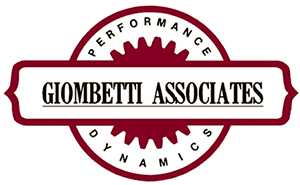
We are all learning as we live … aren’t we? We certainly expect to accumulate wisdom from our experiences. Hardships and blessings are supposed to contribute equally to a useful catalog of lessons learned, from which we can gain insights to make us better bosses, colleagues, partners, relatives and neighbors.
In truth, the process of applying self-reflection for personal and professional growth does not happen automatically. Our instincts lean toward self-protection, so when we face uncomfortable situations, it’s far too easy to fall victim to defensive reactions like fear, anger, resentment, deflection and avoidance.
When we do, we are likely to draw incomplete or even incorrect conclusions and find ourselves repeating mistakes and feeling “stuck” in unproductive and unhealthy situations. If we wish to distill useful lessons from our actions and experiences, we must be conscious and intentional in our reflection. Let’s examine some basic tools we can employ to be sure that we are, in fact, growing wiser with time.
A Long, Hard Look
“Take a long, hard look at yourself,” the saying goes … not a quick, easy look. If we’re going to learn from the past and present, we need to view our actions (and inactions) as objectively as possible. This is no simple task, and it’s not always pleasant or easy.
Remember, too, that we’re looking for a balanced view. While we don’t want to miss opportunities for growth by avoiding discomfort, we don’t want to be too hard on ourselves, either. It may seem counterintuitive, but indulging in harsh self-criticism can be another form of avoidance—if we throw up our hands and declare “I’m a bad person” or “That’s just the way I am,” we are dodging the work necessary for self-improvement and robbing ourselves of the opportunity to live a more fulfilling and productive life.
So how do we achieve an honest, balanced view of ourselves and our actions? Like any behavioral change, it takes practice. Small, steady changes are maintained over time. Let’s look at some achievable daily, weekly, monthly and yearly practices we can put into action to develop the habit of self-reflection for personal and professional growth.
Daily Journaling
Life moves fast. We’re usually on to the next thing before we’re done with the last. Our memories are far from perfect; we start by experiencing an event through our perspective, and details are guaranteed to fade and change as time goes by. That’s why journaling can be such a helpful tool. Just jotting down a few words about what happened that day, how you responded, and how it made you feel will provide a good snapshot of your experience in the moment.
Set aside a few minutes each evening (before bed is usually a great time) to write a few sentences about your day. It’s a good rule to keep it simple. You can use these questions as prompts:
- What happened today that surprised me?
- What happened today that frustrated me?
- What happened today that made me uncomfortable?
- What went “right” today?
- What went “wrong” today?
Weekly Review
At the end of each week, review your daily journal entries and for each issue/event noted, jot down answers to the following questions (this can be in its own section or the margins of your daily entry pages):
- How did I feel about that at the time?
- How do I feel about it now?
- Was this thing within my control?
- Was there anything I could have done differently?
Monthly Inventory
At the end of every month, set aside a half hour to an hour to review your weekly entries, paying particular attention to any patterns that emerge. Do the challenges you noted typically involve specific people, dynamics or activities? Patterns of repeated behaviors and responses can be great indicators of the areas in which there might be lessons to be learned and changes made.
Here are some questions you can use as prompts for your monthly inventory:
- What issues seemed to pop up most often for me? What do these issues have in common?
- What is/are my most consistent reaction(s) or response(s) to being surprised, frustrated or uncomfortable?
- Which situations and outcomes were within your control, and which did you feel were out of your control? Ask yourself:
- When things were within my control, did I act intentionally toward resolution or change? If so, how did it go?
- For issues outside my control, what are my options? Can I or should I make peace with things as they are? Can I discuss this with someone else who may have the power to change it? Do I want—and am I able—to remove myself from the situation?
- What lessons do I believe I can take away from my experiences over the last month, and how can I translate them into action for future situations?
Yearly Reflections
Year’s end is a time when we find ourselves naturally reflecting on the past and envisioning the future. Applying some intentionality to that process can make it useful and actionable.
Set aside an hour or two and find a quiet place to sit down and read through your monthly inventories (if you have the time, read through your weekly and daily entries, too!). Again, make note of emerging patterns and issues—especially those that remain unresolved. Then ask yourself these questions:
- What changes have I made to my behaviors and approaches based on my monthly inventories? Was I able to maintain these new behaviors and approaches over the long term?
- Have those changes resulted in different outcomes? How do I feel about that?
- What problematic patterns did I find that I have yet to take action to change or improve?
- Why have I not acted on those issues? What feelings and emotions come up around them? What action can I take right now to move closer to a change?
- What are my top three goals for the coming year?
- What actions can I take right away to move toward those goals?
Over time, self-reflection for personal growth becomes second nature. We find ourselves reacting more thoughtfully, taking a more impartial view, and treating others and ourselves with greater consideration. It’s a process, and progress will often come in fits and starts. But what we come to realize is that the very practice of self-reflection can be transformative and empowering.
Giombetti Associates places self-reflection at the center of our approach. Our trademarked Performance Dynamics® psychometric assessment process transforms self-reflection into actionable self-awareness. Our executive “Next Level” Coaching and 360 Degree Review processes guide individuals and organizations to increased performance and greater personal and professional satisfaction.
Contact us today to find out more about how we can help you and your organization use self-reflection for personal and professional growth.
